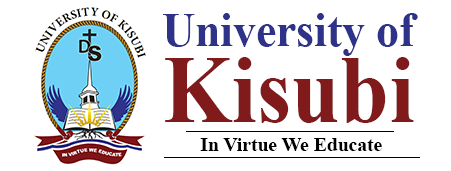MASTER OF ARTS IN EDUCATIONAL LEADERSHIP-2YEARS
Programme Rationale
The Education master’s program is designed for educators who seek a hands-on, interactive, professional growth experience that emphasizes real-world application of current theory and best practices. Special emphasis is placed on expanding and enriching content knowledge, enhancing classroom instruction, and serving the needs of an increasingly diverse student population.
This program brings people with multifaceted and, at times, conflicting perspectives together in a richer and more complex search for what is reliable, worthwhile and true. When such people come together, we are able to achieve one of the highest purposes of education — a community that respects every individual within it.
Programme Learning Outcomes
Graduates of the Master of Arts in Educational Leadership and Mentorship program are expected to be able to do the following:
- Innovative Leadership—Provide educational leadership through the use of leadership principles and technology applicable to educational organizations.
- Communication and Collaboration—Communicate effectively to facilitate professional learning communities.
- Curriculum and Instruction—Evaluate and design curriculum and instruction to ensure and enhance the growth of all learners, especially adults.
- Today’s Diversity—Foster cultural competency by leveraging diversity to ensure growth of the educational organization.
- Management—Manage a safe and effective learning environment utilizing creative supervisory principles and research-based management styles.
- Ethical Leadership and Law abiding—Embrace ethical values to act with responsibility and accountability.
- Assessment—Assess educational effectiveness by utilizing data-driven practices and technological strategies.
- Educational Research—Examine ways to improve education through quality data collection and analysis.
- Developing Self and Others—Empower and nurture employees through effective staff development principles and adult learning theories.
- Mentorship – Nurture students and other professionals within the learning environment to discover their potential and to become the best they can ever be whether as learners or administrators.
Career Prospects
Graduates of master’s degree programs in educational leadership are typically qualified for leadership positions in schools, government agencies and other education-related organizations. They might pursue employment as:
a) School Principals
b) Head teachers
c) Inspectors of Schools
d) Educational specialists
| Year1 Quarter I | |
| CODE | COURSE UNIT |
| MAED51101 | Theories and Practice of School Administration |
| MAED 51102 | Psychology of Learning |
| Year 1 quarter II | |
| CODE | COURSE UNIT |
| MAED 51103 | School-Community Relations |
| MAED 51104 | Teaching and Learning |
| Year 1 quarter III | |
| CODE | COURSE UNIT |
| MAED 51105 | Legal and Ethical Issues in Education |
| MAED 51106 | Managing School Resources |
| Year II Quartet I | |
| CODE | COURSE UNIT |
| MAED 52201 | Supervision, Instruction, Assessment |
| MAED 52202 | Research Methods |
| Year II Quarter II | |
| CODE | COURSE UNIT |
| MAED 52203 | Implementing Content Area |
| MAED 52204 | Philosophy of Education |
| Year II Quarter III | |
| CODE | COURSE UNIT |
| MAED 52205 | Special Needs and Inclusive Education |
| Recess Term | |
| CODE | COURSE UNIT |
| MAED 51107 | Internship I |
| MAED 52206 | Internship II |
| MAED 52207 | Dissertation Seminar |
Applicants for admission to the Master of Arts in Education Leadership degree program at the University of Kisubi should possess:
A Postgraduate Diploma Education from a recognized University/ Institution by NCHE; or
A Bachelor’s degree in Education of at least a Second Class Lower from a recognized University.
330,000 UGX Per course Unit
